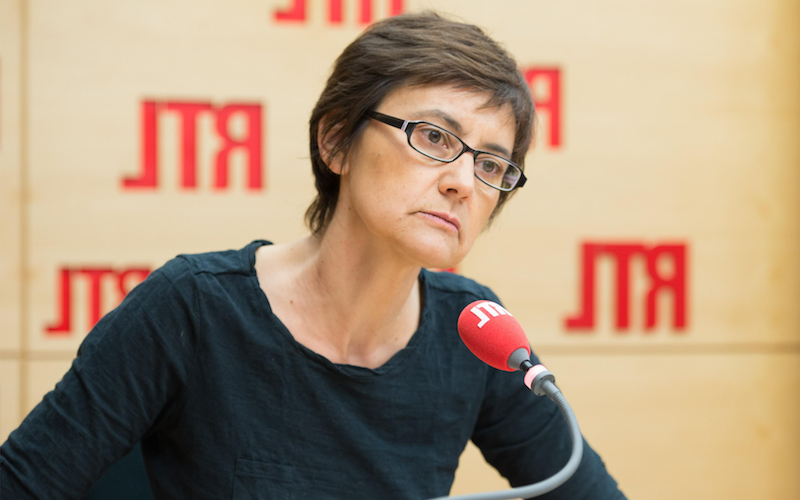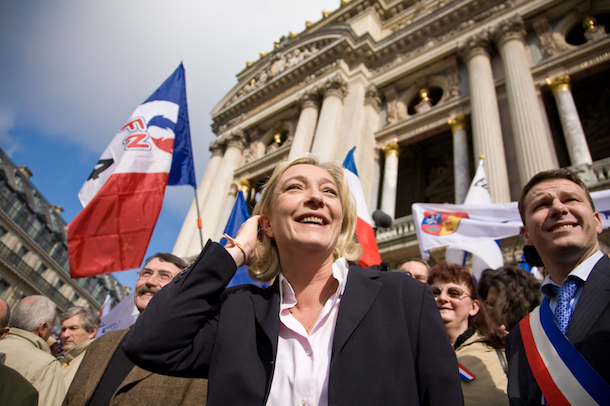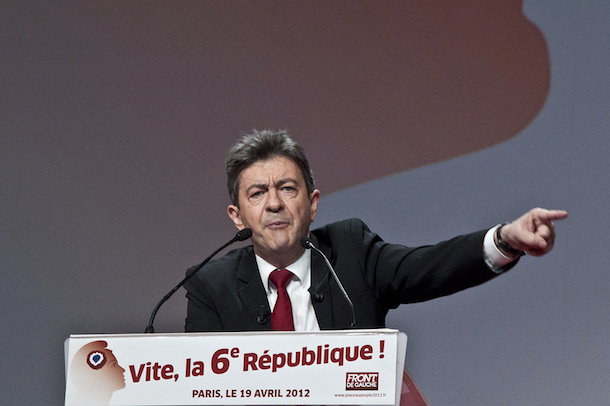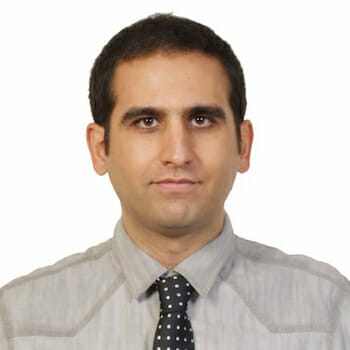
A Candidate with a Utopian View in the French Presidential Election
One of the candidates competing in the national French election is Nathalie Arthaud, a Trotskyist secondary school economics teacher representing the Lutte Ouvrière (Workers’ Struggle) party. She offered her opinions in the following interview.
Her answers have been translated from the original French.
You often refer to the Paris Commune experience. In your opinion, what was the main reason for the Paris Commune’s failure and how did it influence your views?
The Paris Commune was the first experience of the working class in power, an early step in the communist revolutionary movement. But it was confined to only the capital city, the most populated center. The working class could only win in a civil war, waged by the bourgeois power, if it was able to spread to the whole country, and beyond national borders. That lesson still holds.
Some analysts believe that the leftist movement faced an ideological crisis after the collapse of the Soviet Union. Do you see any evidence supporting this claim? Leftist groups in France have never been able to establish a coalition. What do you think is the reason?
As Trotskyists, we knew, long before the Stalinist leaders chose to throw away the Marxist formulas, that the bureaucracy strangled the 1917 workers revolution and revolutionaries. Gorbachev’s politics did not change our communist convictions. Nor did the evolution of Russia since, which only brought widespread theft of economic wealth by the governing bureaucracy and downfall for workers.
Why don’t you approach the French Socialist Party? Don’t you think there would be a chance for capitalist reformation in Europe (as stated by Marx)?
In France, the Socialist Party (SP) is not even a reformist party anymore. It is in power: Hollande, the SP leader, is at the presidency; the cabinet is mainly from the SP, as most of the members of Parliament. They have constantly attacked workers’ rights and have promoted capitalists’ interests every day. For instance the labor law El-Kohmri they forced on workers last year, weakening theirs rights, triggered many demonstrations. They also wage wars in Africa and the Middle East on behalf on French imperialism.
Besides so many political currents have pretended to reform capitalism, in France and elsewhere, many of them having been in power. But capitalism is still there, as long as the bourgeoisie, always thirsty for profits, still dictates it will to the economy. Only a workers’ revolution can deal with that in Europe and in the world.
Do you think that in today’s world, where there are broad and various capitalism networks around the world, worker’s control over various issues is just a Utopian unachievable goal? Don’t you think the Dictatorship of the Proletariat is inherently inconsistent with democracy?
Workers’ control over the economy will come only if workers seize power. To get rid of the dictatorship of the bourgeoisie, through many different political regimes, the proletariat needs to build its own state, its own “dictatorship” which can only prevail if its represents the vast majority of the population. This is far less utopian than believing that the capitalists, their parties, their state will solve the world’s problems.
In your opinion, what is the main reason for the failure of the May ‘68 movement and what did you learn which might be useful for your political activities today?
The May ‘68 movement was a general strike, but never developed into a real revolution. The Trotskyist role in that movement was feeble since the Stalinists dominated the labor movement at the time. The Communist Party and the national unions chose to end the strike before the workers’ consciousness could bypass the reformists. Still, May ‘68 shows how quickly a general strike can spread throughout the economy and what is the magnitude of the power of the working class when mobilized.

You are a Trotskyists. Don’t you think the idea of a permanent revolution which Trotsky believed in has failed? We witnessed Che Guevara’s failure, who also believed in this idea. Don’t you think the situation prevailing in any country is unique and exporting the revolution is impossible?
Of course each country is different from the next. But each workplace is different than the next and that does not mean general strikes are impossible, as in May ‘68. Today the world is more and more united by its economy and so many human links created by migration and by communication technologies. Besides the capitalists’ crises are worldwide.
What the Russian or the Cuban revolutions show, is that if not extended beyond the borders a revolution dies from within and by the pressure of the powerful capitalists states.
We stick with the internationalist idea that Marx popularized with his “Workers of the world, unite!” and that Lenin and Trotsky tried to realize.
What is your view of the current state of America and Trump? What will be your first priority regarding making some changes in French foreign policy as it relates to Washington?
If the workers in France were in power – this would be the meaning of my success in the coming election – they would surely address the workers of America and try to make them allies in a struggle to change the world against their own capitalists and government.
What is your attitude towards the European Union and your opinion about France’s role in NATO? Do you want France to become closer to Russia and China?
We do not think of international relationship as alliances of a state against or with others. In every country, the working class has opposite interest of the capitalist class. We do want close relationship with the workers of Russia or China for the task of struggling against capitalists here and there. Our goal is not to exit the EU but to exit capitalism, together with European workers.
What is the main reason for the support for Marine Le Pen and the French National Front by workers and marginalized groups? Why have the leftist parties failed to attract workers?
The rise of Le Pen within the working class is a direct consequence of the pro-capitalist policies followed by the Socialist party in office now (Hollande), and before (Mitterrand, Jospin) with the Communist party. This has profoundly demoralized workers, and offered a chance for a demagogue like Le Pen.
What is the responsibility of leftist groups should Le Pen win the election? Can leftist and rightist coalitions prevent her from becoming president?
It is impossible now to predict the election outcome. But if Le Pen should win the responsibility of the Socialist party and its allies would be immense. In power Le Pen will continue to attack workers on the behalf of the capitalists, only with more brutal methods. Her victory would also probably trigger a rise of racist acts on immigrants.

Jean-Luc Mélenchon is popular. Why aren’t other radical leftist parties as popular? Would you cooperate with him?
Mélenchon has been a leader of the SP for 30 years before he broke loose feeling the SP would lose its popularity. This has happened now and Mélenchon is trying to revive the old reformist illusions around his candidacy, with a pronounced nationalist twist. Should he win the election, it would be Mitterrand (his model) and the deception that followed for workers all over again.
What caused the rise of ISIS and other Islamic fundamentalist groups in Europe? What is your solution? Why do you oppose declaring an emergency situation in France?
Declaring an emergency cannot stop terrorists, and it has been used by the socialist government against some left militants. There is no reason why the police and the state should be granted more rights over the population, and the population less rights.
As for the problem of radical Islamic terrorism, it is the symptom of a capitalist society and economy that offers too little for the many, while it give so much to a few privileged. Within the cadre of capitalism there is no solution.
The major radical leftists in Europe support Hezbollah and Hamas and believe their resistance against Israel is legitimate. What is your opinion?
It is not our case. In the Middle East we side with the workers, Palestinians and Israelis, who both pay the price of oppression, though differently. The Palestinians are the direct victims and the Israelis are forced into being their executioners.
Do you support Bashar al-Assad because he is secular? What do you think about the current policy of the French government regarding supporting the Syria Opposition? Are you worried about empowerment of the Islamists in Syria?
In Syria there is no solution to the civil war, either on the side of Assad or on the side of the Islamist militias. Besides both are supported, with changes over time, by the imperialist powers (France included) and Russia.
What is your opinion about the hijab and burka and is this contrary to the principle of laicism? Do you support the prohibition of its use in public places?
We side with women who fight for their freedom. We do not think that freedom can be imposed from above. We see Muslim workers, women and men, as workers first. And we wish the workers, whatever their nationality or religious beliefs, could unite against the capitalists.
Some of your critics, namely Sophie de Menthin, accuse you of creating and boosting social hatred, and claim that you cause conflict in French society?
We are proud of being, as communists, fighters within the working class against the capitalist class, to which Sophie De Menthon belongs.
In recent years, your party hasn’t been able to gain more than one percent of the votes. Why do voters no longer vote for radical leftist party programs?
It is a matter of class consciousness, which is low today in France. We fight to change that, and the political exposition of our ideas through elections helps.
You refer to the Russian Revolution in the Soviet era with admiration. What is your response about Stalinist courts, political repression, and establishment of concentration camps? Do you defend this? Do you think that Stalin was the result of the Bolshevik Revolution in Russia?
It is a slander to pretend that Stalin only continued Lenin’s policies. Stalin murdered so many revolutionaries and to a certain point the Russian revolution itself. The rise of the bureaucracy, that gave Stalin absolute power, was not at all a “natural” evolution of the revolution. It was the result of a vicious fight in which the Trotskyists tried to defend the ideas of bolshevism and the principles of the 1917 revolution. We are proud of the fight, though it was lost.

